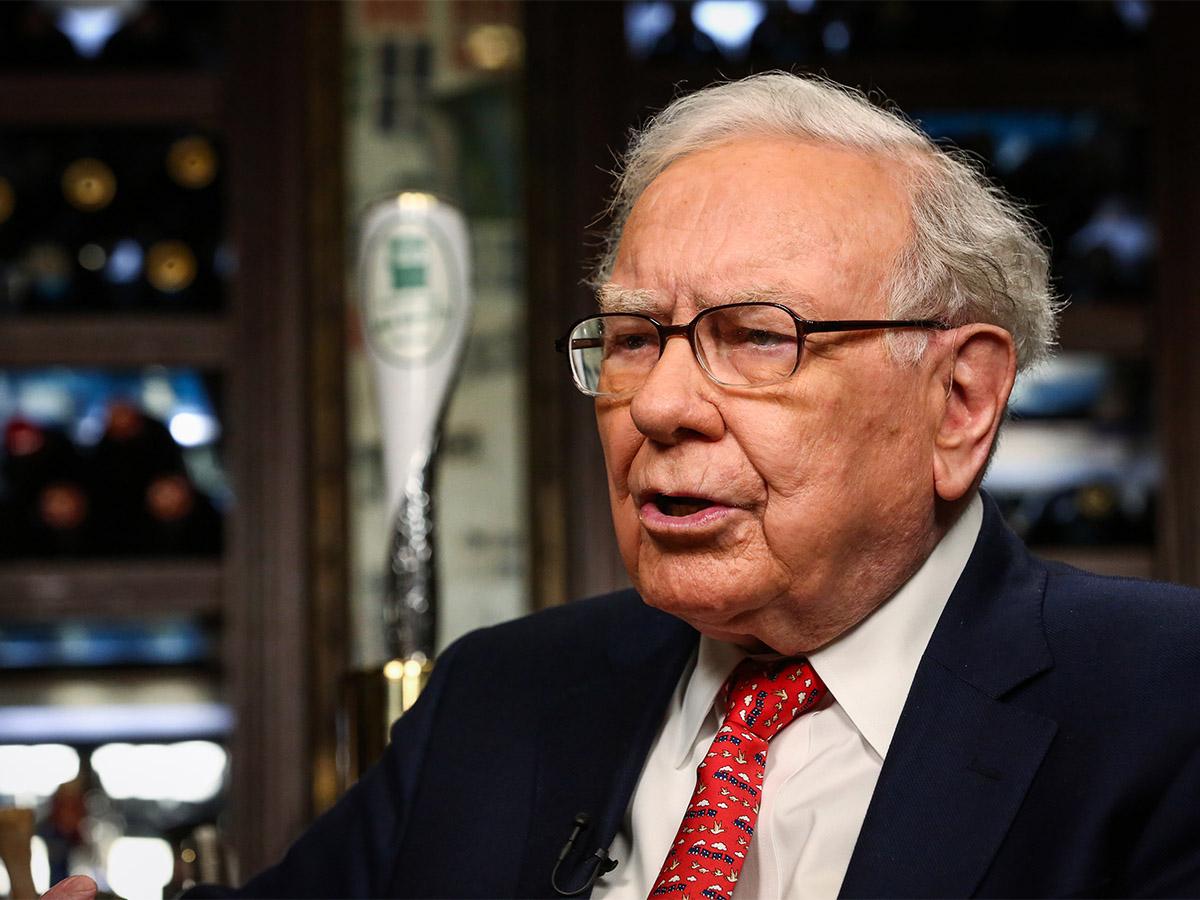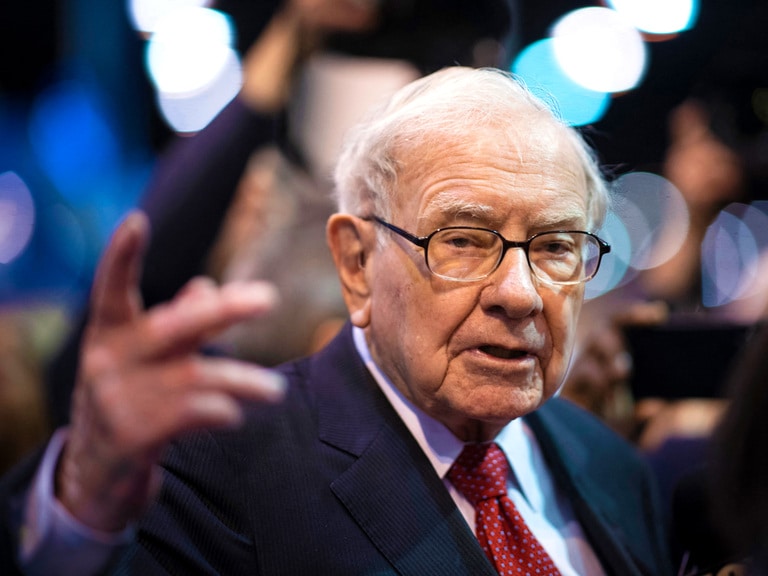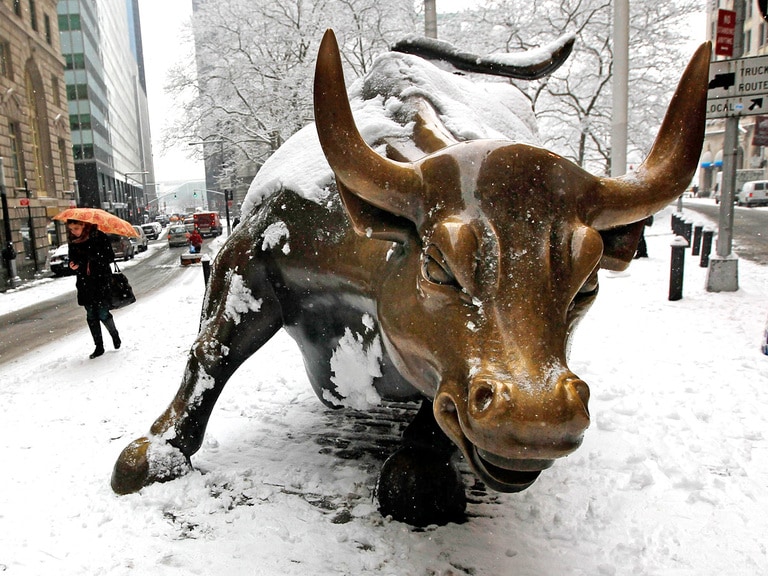This year, Warren Buffett’s annual shareholder letter was hotly anticipated, with many eager for some words of wisdom in the face of market unpredictability.
While Buffett didn’t offer up much that traders haven’t heard before in the form of tips, he did reveal some key insights into Berkshire Hathaway’s [BRK-A] strategy and how it’s likely to fare in coming years. Here are three key takeaways.
What happens when Buffett departs
While Warren Buffett, who is now 89, avoided naming who will succeed him when he departs, he did give some hints at how Berkshire Hathaway will continue without him.
Specifically, Buffett laid out what will happen to his shares when he leaves the company – something he has never previously spoken about in such detail. Buffett has directed the executors of his will to gradually convert his A shares to B shares (which are 1/1,500th the price of A shares) and distribute them to various foundations across 12 to 15 years. These foundations will be required to “deploy their grants promptly”.
Elsewhere, Buffett stated that Greg Abel, who heads Berkshire Hathaway Energy, and Ajit Jain, the insurance head, will take the main stage for questions from journalists at Berkshire’s annual meeting this May. This is a first for the company, which has always been fronted by Warren Buffett and his partner Charlie Munger. It hints at who the veteran investor will be pushing into the spotlight once the partners are no longer able to perform their roles.
Berkshire Hathaway is betting on itself
BH ended 2019 with near $130bn in cash, way over the $30bn figure Buffett has been quoted as saying is the appropriate figure to be keeping. This goes against the Oracle of Omaha’s advice that businesses should put their capital to work.
Various reasons were given for this, including the lack of opportunity in investing in a controlling stake of a valuable company for a good price. Soaring valuations have kept Buffett waiting for a bargain since 2015. However, one stock the company has been betting on is itself.
Buffett’s shareholder letter notes that $5bn was spent on buying back Berkshire’s stock in 2019, with $2.2bn spent in Q4 2019 alone – more than the rest of its stock purchases combined.
$5billion
Amount spent buying back Berkshire's stock in 2019
For repurchases to take place, Buffett has explained that vice chairman Charlie Munger and himself must agree that the stock price is below its intrinsic value. This suggests that Warren Buffett and team believe BH to be good value today, although in the letter he states “in 2019, the Berkshire price/valuation equation was [only] modestly favorable at times”.
BH will be able to withstand “external shocks of an extreme nature”
Berkshire has been badly affected by the coronavirus dip, losing near 10% in value over the past week. Interestingly, on the weekend that new outbreaks in Italy spooked investors, Buffett, in his yearly shareholder letter, was keen to reassure that BH’s model is one that will be able to withstand shocks of an “extreme nature”.
Woven into a section that addresses how the business will fare upon his and Munger’s departure – a major concern for investors – Buffett said: “First, Berkshire’s assets are deployed in an extraordinary variety of wholly or partly-owned businesses that, averaged out, earn attractive returns on the capital they use. Second, Berkshire’s positioning of its “controlled” businesses within a single entity endows it with some important and enduring economic advantages.
10%
Berkshire's loss of value over past week due to coronavirus
He continued: “Third, Berkshire’s financial affairs will unfailingly be managed in a manner allowing the company to withstand external shocks of an extreme nature. Fourth, we possess skilled and devoted top managers for whom running Berkshire is far more than simply having a high-paying and/or prestigious job. Finally, Berkshire’s directors – your guardians – are constantly focused on both the welfare of owners and the nurturing of a culture that is rare among giant corporations.”
Following his annual letter, Buffett spoke to CNBC in an interview, where he stated that the coronavirus is “scary stuff” for businesses and investors, but that the outbreak has “not changed” his long-term optimistic outlook on stocks. He said investors shouldn’t panic or get caught up in “today’s headlines”.
Look at operations over net income
This tip was just a bit of admin advice from Buffett, but still important for investors to know.
New accounting rules implemented in 2018 have affected how BH reports net earnings under the generally accepted accounting principles (GAAP). Buffett has said that 2019’s net earnings growth of 1,900% year-on-year, from $4bn in 2018 to $81.4bn in 2019, illustrates what is wrong with the new rules.
$81.4billion
Berkshire Hathaway's net earnings in 2019
Buffett mentioned this fact to highlight how much him and Munger disagree with the new rules, which state that companies that own a portfolio of stocks must account for unrealized market gains or losses in that portfolio as much as income each year.
From now on, Buffett encouraged investors to look at BH’s operating earnings instead of net income to avoid such wide disparity between financial years.
Disclaimer Past performance is not a reliable indicator of future results.
CMC Markets is an execution-only service provider. The material (whether or not it states any opinions) is for general information purposes only, and does not take into account your personal circumstances or objectives. Nothing in this material is (or should be considered to be) financial, investment or other advice on which reliance should be placed. No opinion given in the material constitutes a recommendation by CMC Markets or the author that any particular investment, security, transaction or investment strategy is suitable for any specific person.
The material has not been prepared in accordance with legal requirements designed to promote the independence of investment research. Although we are not specifically prevented from dealing before providing this material, we do not seek to take advantage of the material prior to its dissemination.
CMC Markets does not endorse or offer opinion on the trading strategies used by the author. Their trading strategies do not guarantee any return and CMC Markets shall not be held responsible for any loss that you may incur, either directly or indirectly, arising from any investment based on any information contained herein.
*Tax treatment depends on individual circumstances and can change or may differ in a jurisdiction other than the UK.
Continue reading for FREE
- Includes free newsletter updates, unsubscribe anytime. Privacy policy





